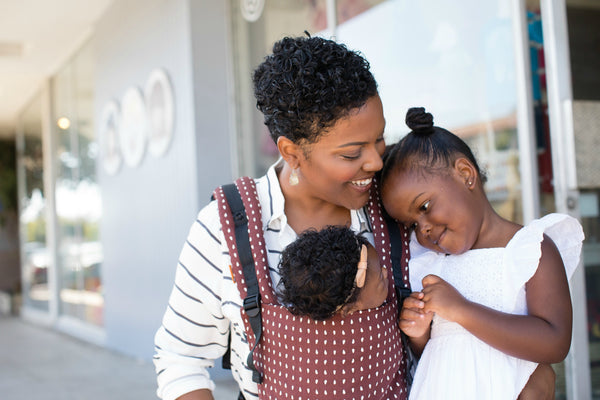
"Yes, We Do Need Black Breastfeeding Week!" is a guest blog written by Chardá Fontenot, a San Diego based CLC, CLE, former breastfeeding mama & advocate
Why do we need Black Breastfeeding Week? The simplified answer is...The racial disparities in breastfeeding rates continue to grow and that needs to change.
However, the “TLDR (too long didn’t read)” answer to this question is one you should read:
Black Breastfeeding Week gives us a moment to celebrate all black lactating individuals and black breastfeeding babies. It is also a time to motivate and inspire others, whether it be through highlighting photos of black breastfeeding families or through advocacy work such as raising awareness around the disparities between black and non-black breastfeeding rates.
FACT: Black women have the lowest breastfeeding initiation rates (about 64%) and the shortest breastfeeding duration (roughly 6.5 weeks) of all ethnic groups.
While many people believe the disparity between the breastfeeding rates exists because black people are simply not interested or not informed about the benefits of breastfeeding, this is far from the true answer. Many black families do want to breastfeed successfully, but the rates remain low because of the barriers that exist for the black community.
There is an overall lack of breastfeeding support in black and brown communities. Inclusive and welcoming breastfeeding support groups that have more representation would make black families more comfortable attending.
FACT: Black people are less likely to receive breastfeeding information from health care providers.
There is a need for more black lactation professionals that can provide trauma-informed lactation care. As well as, ease of access for people to obtain this certification and for others to know they even exist.
FACT: Black mothers are not seeing other black breastfeeding mother represented.
Unique challenges that contribute to the lack of representation may be myths and old wives’ tales from family members telling women they don’t have enough milk to some hospitals sending families home with cans of formula, thus discouraging families from initiating and continuing breastfeeding. There is a stigma in the black community from negative historical breastfeeding practices such as wet nursing during slavery that continues to inform how black mothers initiate or continue to nurse.
Other socioeconomic and geographical concerns can also create additional barriers. First food deserts is a term that describes areas that are severely lacking in access to nutritious affordable fresh fruits and vegetables for families and breastfeeding individuals.
All these barriers perpetuate the idea that black women don’t care about breastfeeding and prevent us from getting the guidance we deserve.
Looking for Solutions
To increase the rate of black breastfeeding families, we all must acknowledge and accept first that these barriers do exist and then figure out how to address them with cultural competency, trauma-informed care, access to adequate resources, and support. We can’t be afraid to discuss the reality that black women are disproportionately experiencing more barriers to achieving their breastfeeding goals.
One of the ways I’m helping to improve black maternal and infant birth and health outcome is by being a Perinatal Navigator for PCI’s Healthy Start program which offers prenatal, childbirth, and lactation support to black families, including increasing access to Black midwives and doulas. There are also lactation counselors and consultants available who are experts in addressing breastfeeding complications. These resources empower Black women and help African-American women to reestablish breastfeeding as a tradition. By improving breastfeeding rates within the Black community, we will directly achieve better overall health and reduce racial inequities for our community. We can accomplish this through continued education, support and advocacy for Black women and their families.
To find planned events and news related to Black Breastfeeding Week, head to their website: http://blackbreastfeedingweek.org/
More about our guest blogger, Chardá
In addition to being a CLEC (Certified Lactation Educator-Counselor), Chardá Fontenot is a doula with For The Village, a childbirth educator, and an elected board trustee for the La Mesa Spring Valley School Board of Education. She and her husband have 2 fun-loving boys, 1 little old dog, 1 feisty dwarf hamster, and 1 awesome teenage bonus daughter. Chardá breastfed both of our boys past 13 months and enjoyed it so much that she found a passion to become a CLEC. She is also beginning the journey of obtaining an IBCLC and cannot wait to be able to serve in marginalized communities that desperately need the support they have been deserving for years.

